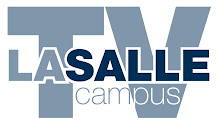Programa Académico
The structure of La Salle's M.B.A. Program is composed of five sections: Foundation, Core, Electives, Executive Perspectives, Integrative Capstone and the Electives.FOUNDATION
The purpose of the Foundation area of this program is to provide students with a functional knowledge of business theory in the context of decision making and leadership skills.
The purpose of the Foundation area of this program is to provide students with a functional knowledge of business theory in the context of decision making and leadership skills.
- MBA 610: Business Economics
- MBA 615: Financial Accounting: A Customer Focus
- MBA 620: Statistical Thinking for Managers
- MBA 625: Effective and Efficient Management of Operations
- MBA 630: Financial Markets
THE CORE
The following three courses (three credits each) provide students with practical applications for business leaders in the areas of marketing, accounting, and financial management. Applying our analytical, problem-solving approach to business education, the courses in this area ensure comprehensiveness in the program of studies, expose the student to these areas at a more sophisticated level than most traditional M.B.A. programs, and supply a conceptual framework for the analysis of management decision making.
- MBA 690: Creating Customers Through Effective Marketing Management
- MBA 691: Managerial Accounting for Decision-Making, Planning and Control
- MBA 692: Financial Performance: Control and Measurement
EXECUTIVE PERSPECTIVES
The following three courses (three credits each) provide students with a greater understanding of what it means to lead ideas and people in an organization. Topics include assessing and developing one's leadership skills, learning how to use technology for managing the vast array of information sources available, and in making appropriate decisions, understand how the financial outlook of an organization might be effected by such decisions.
- MBA 810: Self-Assessment for Leadership
- MBA 820: Information Technology for Decision-Making
- MBA 830: Financial Statement Analysis
INTEGRATIVE CAPSTONE
The following two-course sequence (three credits each) is taken in the last two semesters of the student's program. These two courses are completed as a cohort group and provide the opportunity to integrate what has been learned in the core, specialization, and executive perspective areas while adding other content in business strategy, global perspectives, and ethical/legal dimensions necessary to succeed in the global business arena.
- MBA 901: Competing in a Global Market I: Analysis of the Business Environment
- MBA 902: Competing in a Global Market II: Analysis and Implementation of Strategy
ELECTIVES: Stage La Salle University Philadelphia
Students are required to complete two 700-level courses. The courses are offered based on the student preferences of the cohort group.
MORE ON LA SALLE INTERNATIONAL GRADUATE SCHOOL AT MADRID
-For further info on La Salle International Graduate School formative possibilities, visit us here
-For a multimedia presentation of La Salle Campus facilities at Madrid, visit us here
-For our alumni professional networking group, visit us here
_______________________________
*Info compiled by Retelur Marketing



